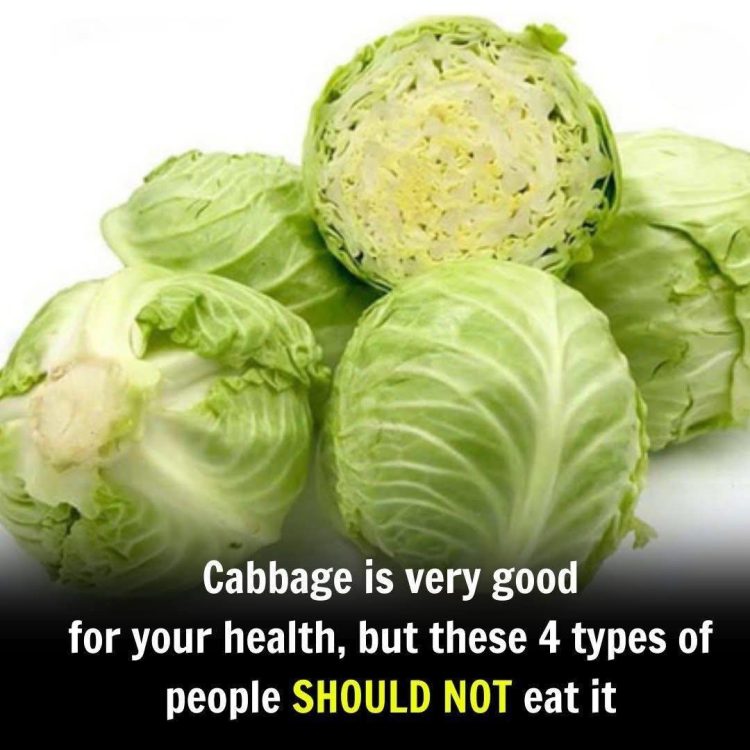Cabbage, a humble yet widely consumed vegetable, is more than just an ingredient in coleslaw or kimchi. Belonging to the Brassica oleracea family—alongside broccoli, Brussels sprouts, kale, and cauliflower—this leafy green (also available in red or purple varieties) has been cultivated for thousands of years and is a staple in cuisines worldwide.
Though cabbage is celebrated for its culinary versatility, its true value lies in its dense nutritional profile, offering a wide array of vitamins, minerals, antioxidants, and fiber. But while cabbage can be a powerhouse for health, it’s not without its downsides. For some people, especially those with certain health conditions, cabbage may cause more harm than good.
🌱 What Makes Cabbage a Superfood?
Cabbage is low in calories but rich in essential nutrients. Just one cup of raw cabbage contains:
-
22 calories
-
56% Daily Value (DV) of Vitamin K
-
36% DV of Vitamin C
-
10% DV of Folate
-
Fiber, Manganese, Calcium, Potassium, and Magnesium
✨ Key Health Benefits
-
Boosts Immunity: Rich in vitamin C, which supports immune defense and reduces oxidative stress.
-
Anti-inflammatory: Contains antioxidants that lower inflammation and risk of chronic diseases like arthritis and IBD.
-
Digestive Health: High fiber supports gut bacteria and regular bowel movements.
-
Heart Support: Helps lower LDL cholesterol and regulate blood pressure.
-
Cancer Prevention: Glucosinolates convert into compounds that may reduce cancer risk.
-
Bone Health: High in vitamin K, supporting bone density and reducing fracture risk.
-
Weight Management: Low-calorie and high-fiber combination promotes satiety.
-
Blood Sugar Control: Fiber and low glycemic index help stabilize blood sugar levels.
-
Prenatal Support: Folate is essential for fetal neural development.
🏥 Nutritional Uses and Medicinal Applications
Beyond the dinner plate, cabbage has a long history in traditional medicine:
-
Topical Use: Cabbage leaves are used to reduce breast swelling and discomfort in breastfeeding women, sometimes proving as effective as cold compresses.
-
Medical Nutrition: Its vitamins, minerals, and fiber make it ideal for managing cholesterol, blood pressure, and blood sugar, and supporting wound healing and bone health.
⚠️ Who Should Be Cautious With Cabbage?
see continuation on next page
